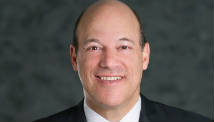How you search Facebook is about to change. In fact, just the act of searching Facebook is probably about to start.
Facebook is trying to give Google a run for its money, with a new product called "Graph Search." It turns some of the personal information people have shared on Facebook into a powerful searchable database.
For the social network's 170 million users in the U.S., it's bound to change the way people interact with their Facebook friends. It also could mean lots more time wasted at work.
Facebook allowed ABC News "Nightline" behind the scenes ahead of today's product launch, an event shrouded in secrecy and rife with speculation. Company officials had sent out a tantalizingly vague invitation: "Come and see what we're building."
CEO Mark Zuckerberg has long wanted to develop a social search engine, even hinting back in September that one might be in the works. The new feature gives users the ability to easily search across the network and their friends' information. Company officials say they believe it has the potential to transform the way people use Facebook.
Graph Search: What Is It?
Until now, the search bar you saw when you logged in to your Facebook page wasn't very powerful. You could only search for Timelines -- your friends' pages, other peoples' public pages and business or product pages.
But now, after close to a year and a half of development, the new "Graph Search" will allow you to search and discover more about your friends and other information that's been put on the world's largest social site.
Inside the Crucial 24 Hours Before Facebook's Graph Search Launch: Watch Tonight at 12:35 a.m. on ABC News "Nightline"
The new tool, available only to a limited set of U.S. users at first, turns key information that nearly a billion people have shared on the site -- including photos, places, and things they "like" -- into a searchable database tailored to your individual social network.
The new tool allows you to search across your friends' Timelines, without having to go to each of their Timeline pages to find out if they like a specific place or thing.
"I can just type in a short, simple phrase, like friends who like soccer and live nearby," Facebook product manager Kate O'Neill, told ABC News "Nightline" in an exclusive behind-the-scenes interview. "And now I'm getting the exact group of people that I'm looking for, so I can play soccer and ask them if they want to kick the ball around with me after work." O'Neill was able to narrow down the search in a demonstration only to show women.
MORE: Guide to Facebook's New Privacy Settings
The tool can search your friends' publicly shared interests, photos, places and connections. O'Neill showed ABC News how you can search for different musical artists and see which of your friends like them. She also showed how you can search a company and see which of your friends, or friends of your friends, work there. Additionally, you can search for photos of a specific place -- like Big Sur -- and the Graph Search will return images your friends might have taken of the location.
Right now, you can't search for things that were shared in a Timeline post or an event. However, O'Neill confirmed that this would be added to Graph Search later.
Privacy and Opting Out
The new product raises obvious privacy questions. Will personal information now pop up in the Graph Search, even if you never wanted to share it? How about those photos you never wanted to have on Facebook in the first place, or the ones you thought you were sharing only with your close friends?
"[Privacy] is something, of course, we care a lot about, and so from the very beginning we made it so that you can only search for the things that you can already see on Facebook," Tom Stocky, one of the lead Graph Search senior engineers, told "Nightline."
Stocky also pointed ABC News to Facebook's recent privacy tool changes, which allow you better to see what personal information your friends and others can see on Facebook. O'Neill showed the new Activity Log tools as well as the photo "untag" tool, which lets you contact others who might have a photo of you posted that you'd wish they'd take down.
When asked if users can opt out of the new search in general, Stocky said that they can choose to change the privacy settings on each of their pieces of content.
















